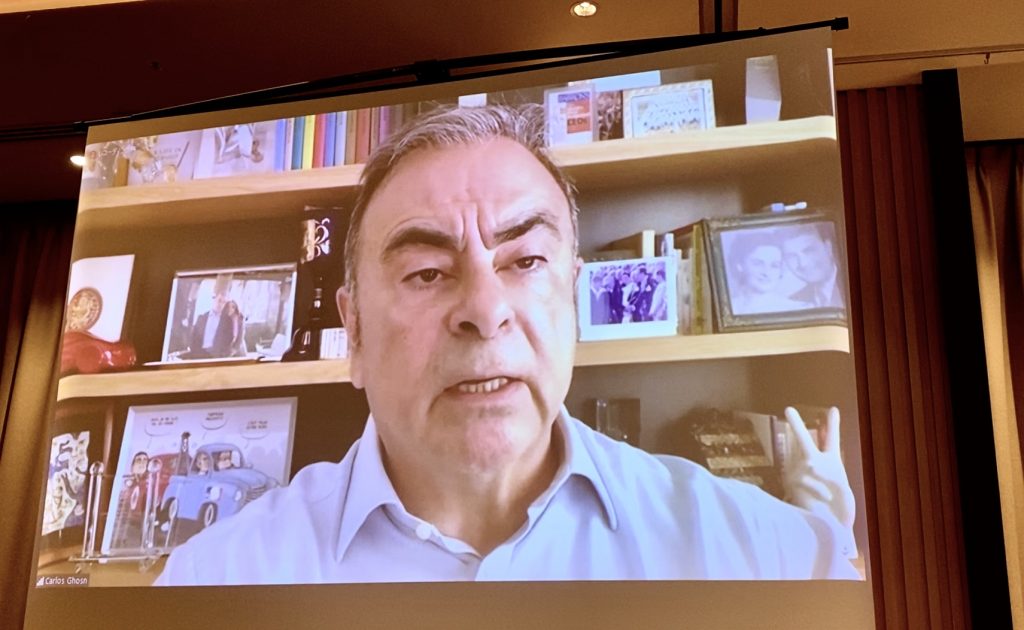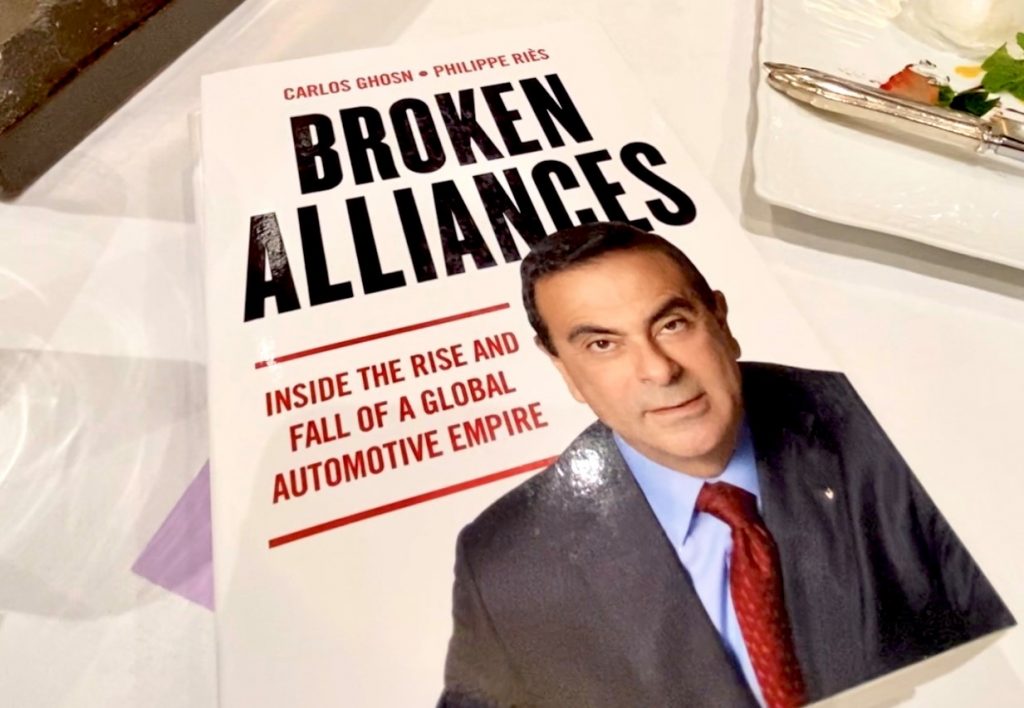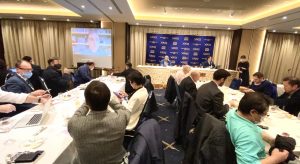



Khaldon Azhari
TOKYO: Former Nissan Chairman Carlos Ghosn said on Monday his escape from Japan to Lebanon “should not impact relations” between the two countries because it is “a legal issue, not a political one.”
In a video press conference at the Foreign Correspondents’ Club of Japan in Tokyo, Ghosn covered most of the issues surrounding his arrest in 2018 and subsequent escape to Lebanon.

“Lebanon has democracy,” Ghosn stated. “The law in Lebanon is very clear. They do not extradite their citizens,” the former Nissan CEO said in response to Arab News Japan.
Ghosn defended the Lebanese legal system, which is currently facing pressure from those who oppose a thorough investigation of the August 2020 Port of Beirut explosion. Despite terming his case a legal issue, Ghosn queried the actions of the Japanese government. “We have ministers of Japan intervening. Why? This is about paying compensation, and this is about suspicion. This is not supposed to be the level of the nation,” he said.
Ghosn added that if Japan wanted to try him in Lebanon, they must send the legal files, process them through the Lebanese judicial system and defend the case in Lebanon.
Ghosn claimed that the Japanese authorities used “unethical tactics” – such as separating him from his wife – to force a confession. “They thought I would confess,” the ex-CEO said.
“I did not confess. Then they said, ‘OK, we are going to keep you in Japan. The guy is 64 years old, when he gets out, he will be 85 or 95 if he is still alive. That’s it.”
“But my escape from Japan changed all things. I can now express myself, I can defend my case, I can call for people to witness what I have been through,” he explained. “So, I do not think this will create problems between the two countries because it is not supposed to be a political problem. It is supposed to be a legal problem.”
Speaking to Arab News Japan, a foreign ministry official said that it is crucial for Japan to help Lebanon reach its Sustainable Development Goals (SDGs). “Lebanon is one of the key players in the Middle East Peace Process. Thus, its stability is crucial for peace and stability of the region,” the official added. “We need to be cautious about taking measures against Lebanon to extradite Ghosn because that would further destabilize Lebanon.”
Ghosn also asserted the innocence of Greg Kelly, who was a close aide and is currently on trial in Japan for allegedly helping Ghosn hide his compensation. “I think he (Kelly) is innocent,” he said.
“He is paying with three years of his life (on trial and being) held hostage in Japan,” Ghosn said, adding that Kelly, 65, former Nissan representative director, “was arrested on a bogus charge.”
If Kelly is guilty, “then many other Japanese people (who served as Nissan executives) should be in prison with him,” Ghosn fumed, criticizing Japan’s legal system. Ghosn said that Nissan’s current financial situation “is not my problem anymore.”
He, however, said, “Personally, today, I don’t think there is a vision inside Nissan.” “There is no vision, they (Nissan) don’t know where they are going, (and) they have no image about this huge technological transformation (involving the automobile industry) that is taking place.” he said, adding, “Nissan is having such a pitiful result and being proud of it.”
Pointing to Japanese automakers’ tendency to lay weight on tradition and the past, Ghosn said that they, particularly Nissan, are “in a very bad position” in their shift to electrification. “The speed of this shift is going to determine who is the winner,” Ghosn said. *With JIJI Press